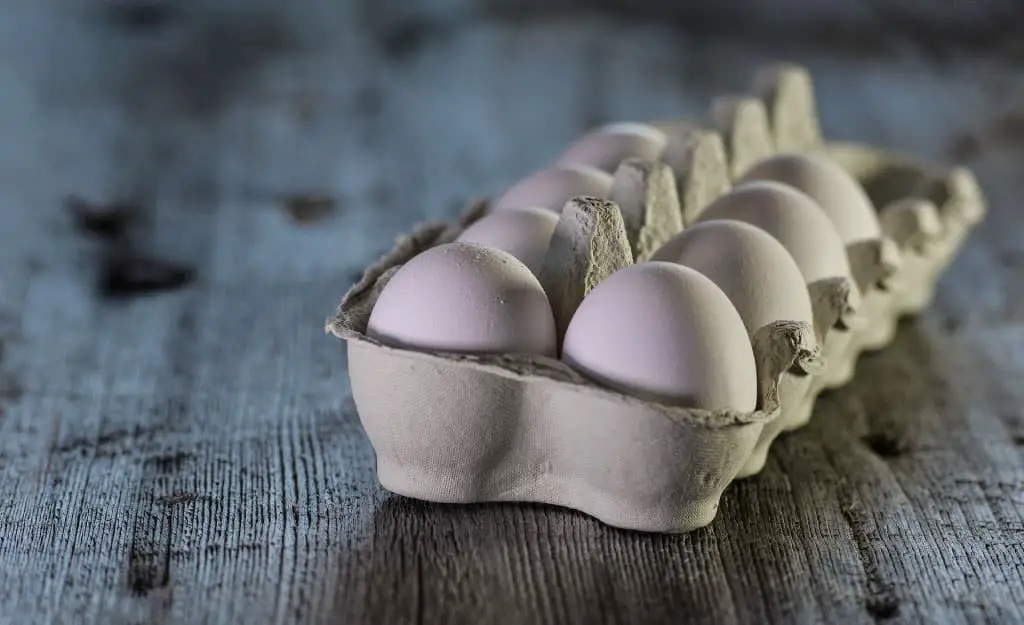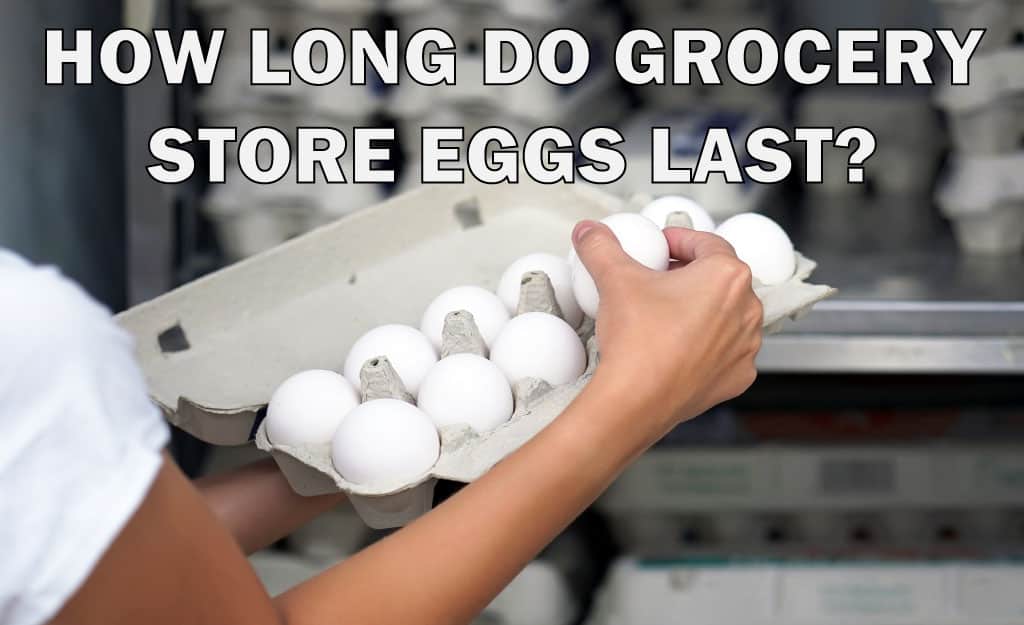While it would be nice if everyone could go to the backyard and grab fresh eggs whenever they wanted, it’s not feasible for every lifestyle. Thankfully, grocery stores carry dozens of eggs for us to go and pick from every day. The issue that most people have is figuring out when their eggs are no longer suitable to eat.
Grocery Store eggs tend to go bad faster than fresh eggs because once the eggs are refrigerated, they have a shorter expiration date. Grocery store eggs usually last anywhere from 3-5 weeks in a fridge. While they can be eaten after the expiration date, this is when bacteria starts to build up, so it is not recommended.
(Source: Good Housekeeping, The Spruce Eats, Delish)
Now, how long your eggs last depends mostly on how you store them. If done correctly, they should last a decent amount of time, depending on storage methods. If stored incorrectly, they can go bad quickly and grow bacteria that can cause salmonella, which gets you very sick. Storing eggs correctly is key to keeping them fresh and keeping you safe.
How To Store Eggs Correctly
While you may think there is only one way to store your eggs, there can actually be several ways to store them, and in some ways, they can lengthen the life of your store-bought eggs. However, no matter how eggs are stored, they need to be handled with clean hands and never allowed to get to room temperature before getting cold again.
In The Refrigerator
The easiest way to store eggs is in the refrigerator, in the middle towards the back, in the original carton you bought them in. This lowers the different bacteria eggs can be exposed to when changing containers and doesn’t cause any extra work on your end.
You can also buy containers that are meant to hold a few dozen eggs that make it easier to fit so much in your fridge. The containers are also convenient because it is recommended to turn over your eggs once every few days to prevent bacteria’s growth. You can just flip the entire container instead of each individual egg.
If you get home and figure out one of the eggs in the carton is cracked, you need to store your eggs in a different container and don’t try to save the cracked egg. Trying to save a cracked egg or anything with egg yolk on it is the quickest way to breed bacteria in your fridge.
Trying to save the egg or the carton can lead to your other eggs going bad rather quickly due to bacteria that will grow from egg residue.
In The Freezer
If you seem to throw away more eggs than you eat, or even if you just found a great sale and want to buy a few dozen to store, you can actually store eggs in the freezer for up to 9 months when done correctly.
You can either store them scrambled or separate the whites and yolks. You can scramble all of your eggs and pour them into a clean ice tray and let them freeze. Once they are frozen solid, you can move them to a freezer-safe container or bag and use them as needed.
If you want to freeze them separately, you can still use the ice tray, just store them in different containers after they are frozen.
Now, no matter if you are baking with them or eating them as is, the consistency may change a bit, as well as measurements. You can estimate that two cubes are equal to one egg, but you may have to tweak your recipe a bit to make up for the eggs being frozen and losing some liquid.
Pickled Eggs
Now, one more way you can keep eggs fresh for a more extended period of time is by pickling them. You won’t be able to use them for baking this way, but they can stay at refrigerator temperature for up to 4 months.
You have to start by hard boiling the eggs and peeling them. Once you have done that, you can place them in a sterile glass jar with pickling solution and place them in the fridge. Now you will have pickled eggs ready to eat whenever you want.
(Source: Preparedness Mama, The Spruce Eats, Delish)
How To Test Freshness of Eggs

You can do a few at-home tests to help you decide if your eggs are good and how fresh they are. While these aren’t foolproof, most of the time, they are pretty accurate, and they can help you figure out if your eggs are good or bad without cracking them open.
If you have a cup or bowl, you can fill it with enough water for the egg to float and place the egg in the water. If the egg floats, it’s bad. If the egg sinks but stands up on its end or at an angle, it’s not fresh but still good enough to eat. If it turns on its side and sinks, it’s very fresh.
You can dissolve two tablespoons of salt into the water in a cup and place the egg in for a more simple test. If it sinks, don’t eat it because it’s bad. If it floats, you’re good to go.
How To Tell If Eggs Are Bad
Now, storing eggs is tricky because eggs can go bad very quickly when stored or mishandled. There are a few things to look for if you think your eggs have gone bad such as:
- Smell – if it smells bad, throw it out.
- If the shell is slimy or cracked in any way, even if the inner membrane isn’t punctured
- Expiration date – if it is past the expiration date, don’t take any chances.
- If the egg or shell looks weird in any way, throw it out.
Since eggs can grow bacteria that causes salmonella, you want to be extra careful to ensure your eggs aren’t too far past the expiration date and that they are stored correctly. This isn’t a hard thing to do, but most people take risks with eating older eggs, and it’s just not worth it.
(Source: The Spruce Eats, Healthline)
What If You Eat A Bad Egg?
If you accidentally eat a rotten egg, you may never know it. Sometimes, depending on your body sensitivity, your digestive system handles the bad food so well, you never notice. However, in some cases, you can end up with pretty severe issues.
With eggs, the main thing you have to worry about is salmonella. While it can be mild in some cases, in others, it can be severe enough to put you in the hospital. If you are worried that you ate a bad egg, start looking for these signs:
- Fever
- Diarrhea
- Nausea
- Vomiting
- Stomach Cramps
- Dizzy Spells
If you are experiencing any of these, or more than one, you should probably seek medical help and rest. Most people experience mild symptoms that don’t escalate to anything more than a rough hour or two.
As long as you stay hydrated and eat something light while waiting for the symptoms to pass, you should be fine.
(Source: Medical News, All Recipes)
Final Thoughts
Store-bought eggs are such a convenience to those of us who don’t want to raise chickens and go grab the eggs every day out of the coop. However, grocery store eggs usually don’t last as long as fresh eggs.
Thankfully, there are various ways you can store them that allow them to stay fresh as long as your lifestyle calls for. Ensuring they are stored and handled correctly dictates just how long your eggs end up being fresh enough to eat.

